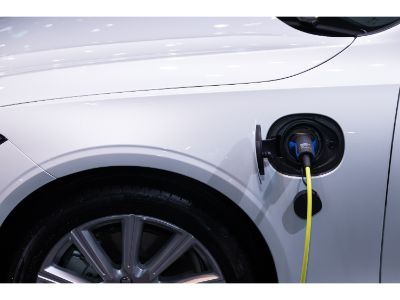Things you NEED to know about electric cars
New technology is occurring across the world at an alarming rate. One of the results of this is the emergence of electric vehicles.

Over the years, the automotive industry has gone through more changes than it has for the past few decades. Electric cars have brought on innovative changes which set to pave the way to a more favourable future.
What is an electric car?
An electric car is an automobile that is powered and propelled by one or more electric motors, using energy reserved in rechargeable batteries.
The history of electric cars
The origin of Electric Vehicles can be traced to 1884 when Thomas Parker, a London innovator in charge of the city's overhead tramways electrification designed the first electric vehicle. This was triggered by his aim to reduce the number of low fuel efficiency and environment-friendly cars in which high capacity rechargeable batteries powered his Electric Cars.
Are you looking to purchase an electric car?
Are you considering to buy an Electric vehicle, here are five essential things to know before making the decision:
- It moves quicker than a vehicle powered by petrol - Electric cars have gained quick recognition for being less vigorous and flashy than petrol/diesel vehicles. However, as they reserved an additional reputation, the driving expertise helps to reverse this notion. Unquestionably, with respect to horsepower, electric cars attains a higher maximum speed. In several instances, accelerating from a stop in an electric vehicle will leave most other cars behind.
- Electric cars also emit pollutant but in less proportion - A typical battery powered vehicle does not energy pollute while circulating. The electricity consumed in the process of its manufacture and with other materials used in addition to electricity consumption can generate pollution. However, the impact on the environment is quite minute. In most advanced countries of the world, the commitment to the use of renewable energy source seems unstoppable. According to the European legislation for instance, at least 40% of electricity production will emanate from renewable energy sources by 2020, and as a consequence, the indirect emissions of an electric car be reduced to the bare minimum to about 3kg of CO2 for every 100 kilometers.
- How do electric vehicles work? - An electric vehicle works in almost the same way the motor vehicle work. Just like regular vehicles, electric vehicles have a thermal cooling system. Their batteries, containing metal ions (lithium) as they're within the regular engine, are susceptible to heating once used and thus have got to be maintained at the proper operational temperature. Electric vehicles also contain a regulator that controls energy levels produced and consumed. It helps the battery from burning out.
- An electric automobile can be charged at home - One of the advantages of Electric Vehicles is that it can be charged at home. The charging point can be installed at your residence or your parking space. You can have a 16 to 20-ampere connector within three days. The height of the comfort that comes with an Electric vehicle is that you can leave it charging at night for the batteries to be fully charged in the morning so you can cover the planned distance with full confidence.
- Low maintenance costs - As a result of its fewer parts, unlike vehicles with combustion engines, electric vehicles have low maintenance and running costs. The batteries, even though expensive, have a lifetime of many years, which keeps the replacement cost low. The total energy consumption for these species of cars is also low. On the average, an EV consumes 0. 20kWh/mi which translates to about 1.75 p/mi while the fuel-powered one uses 10 p/mi.
12 people found this review helpful



 Sign up for SPECIAL OFFERS
Sign up for SPECIAL OFFERS
